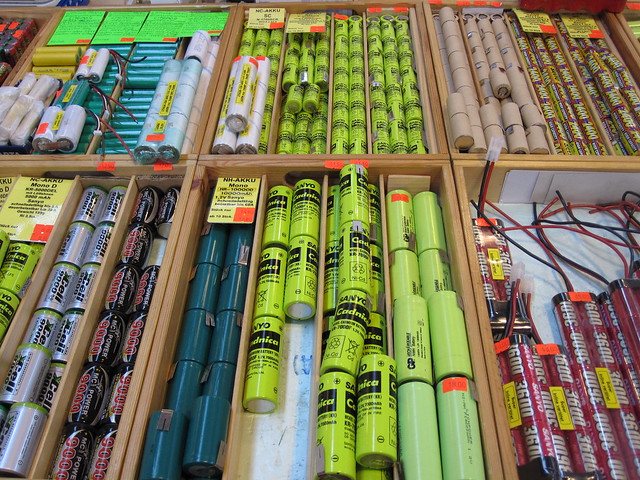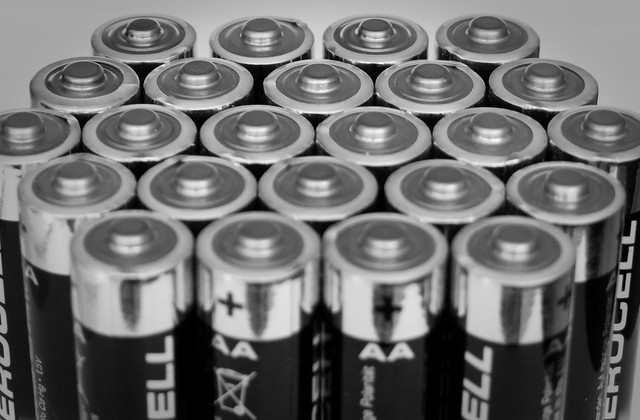How Much Longer Do Lithium Batteries Last Compared To Alkaline?
Jun 17, 2019 Pageview:2170
Alkaline and Lithium batteries are the most common types of batteries that are used as personal power source. Each one has its own benefits, chemical composition and features. Let's delve into these two different types of batteries, compare them and examine their shelf life.
How Long Do Lithium Batteries Last?
The lifetime of Lithium batteries is much greater than alkaline batteries. Lithium batteries were once created to be rechargeable and built for devices like cell phones, laptops, and many others. However, lithium batteries were showing some problems and were not safely rechargeable. Now, the technology has gone beyond and lithium batteries are available in AA and AAA versions. Lithium batteries have capacity to power artificial pacemakers due to its long shelf life and amount of energy they supply. Lithium batteries are also used in long-term power sources like computer motherboards and smoke detector.
Lithium batteries exhibit longer shelf life of 10-12 Years. The reason behind greater life of lithium batteries is that they can tolerate extreme low temperatures. Lithium batteries utilize lithium metal as their anode, which has ability to function without failing in a cold climate, which also makes it appropriate for outdoor applications.
How Long Do Alkaline Batteries Last?
At room temperature (i.e. 70°F/ 21°C), alkaline batteries have a shelf life of 5 to 10 years. Prolonged storage at high temperatures can decrease the storage life. Since alkaline batteries are not rechargeable, there's no cycle life. This is why alkaline batteries are more suited for low drain applications such as simple smoke alarms, clocks, and short intermittency devices like remote controls. The working of alkaline battery depends on the reaction between zinc (Zn) at anode and manganese dioxide (MnO2) at cathode. The electrolyte used in it is called as potassium hydroxide, which is purely an alkaline substance.
Comparison between lithium batteries and Alkaline Batteries
Essentially, both Lithium and alkaline batteries are comprised of different materials and are constructed differently, which ultimately affects their performance in several ways.
They are chemically different
The chemistry inside the two batteries is entirely different. While Lithium batteries use Lithium in its pure metallic form, alkaline batteries use manganese dioxide and zinc as active materials. This main difference in chemistry becomes a gateway to many other differences.
Weight
Lithium batteries are lighter in weight as compared to alkaline batteries. This is why manufacturers prefer lithium batteries over heavy alkaline batteries to use them in portable devices like small LED flashlight and remote control.
Operating temperature
Which one performs better? Is it alkaline battery or lithium battery? Well, a battery's temperature influences its performance. Not every battery can do well in adverse temperature and weather conditions. Though alkaline batteries are cheaply available but you cannot rely on these batteries in severe weather conditions. On the contrary, lithium batteries can function well in both extreme high or low temperature conditions. This feature makes lithium battery a ideal choice to use in outdoor applications like taking pictures, hunting, and can be used in cameras and flashlights.
Voltage
Lithium batteries generate twice as much as voltage as alkaline batteries. While Lithium battery tends to produce around 1.75V/cell or more. On the other hand, alkaline batteries generates around 1.5V/cell. In case you want to replace alkaline batteries with Lithium ones, make sure to choose the right voltage, type or size. This is done to avoid any damage while replacement.
Cost
Cost of raw materials and of the production process to make alkaline batteries is lower than that of Lithium batteries. This is because Lithium is a rare material and hence it is costly. Also, lithium tends to be a reactive element which is why manufacturing takes place in a sophisticated way. Thus all of it comes with large capital expense.
Additionally, AA and AA versions of Lithium batteries tend to be more expensive than alkaline counterparts due to their longer shelf life. If anyone has constraint budget and just want simple batteries, then alkaline batteries are the suitable option for them. However, if you don't mind spending some more bucks on reliable power source, then Lithium batteries are the best choice out there. The features lithium battery comes with worth each and every penny. Get these to satisfy your power needs with long runtime.
Energy density
Lithium batteries possess high energy density, tend to last longer and provide better performance than alkaline battery.
Applications
From small portable devices to large ones, lithium batteries can be used in range of devices like calculators, car remotes, watches, and digital cameras. On the contrast, alkaline batteries are available in range of sizes which makes it a suitable choice for low-drain applications as well as high-drain applications.
Toxicity
As far as safety is concerned, lithium batteries are known to be toxic, whereas alkaline batteries are not. This is partially because of the fact that lithium batteries are more energy dense, and due to reactivity of Lithium. Hence, lithium batteries should be thrown away with care.
Conclusion
Batteries are an achievement of science. They allow technologies to exist and function without power cables. Yet even the efficient batteries will diminish with passing time; slowly lose their capacity until they eventually die.
All in all, a lithium battery is a high-performing better alternative as compared to alkaline battery. However, the advantages come at a cost. Let's face it. Lithium batteries are designed with more expensive technology, which means buyer has to pay more. Undoubtedly, these batteries outlast the regular lifespan of inexpensive devices like toys, flashlights, but high cost is not justifiable in every case. Also, loose Lithium batteries are not allowed in checked bags. In fact, some airlines approve Lithium batteries in carry-on bags.
Alkaline manganese dioxide batteries, normally called as alkaline batteries are all-purpose power source for day-to-day gadgets and last longer than other types of batteries such as zinc batteries. However, some improvements are required to increase their usage and demand. For instance, anti-leak protection or specially designed coating can be employed to reduce the leakage and increase the reliability of these batteries respectively.
- Prev Article: 18650 disposable battery
- Next Article: Lithium-Ion Battery Consumer Electronics
Leave Message
Hottest Categories
-
Hottest Industry News
-
Latest Industry News













